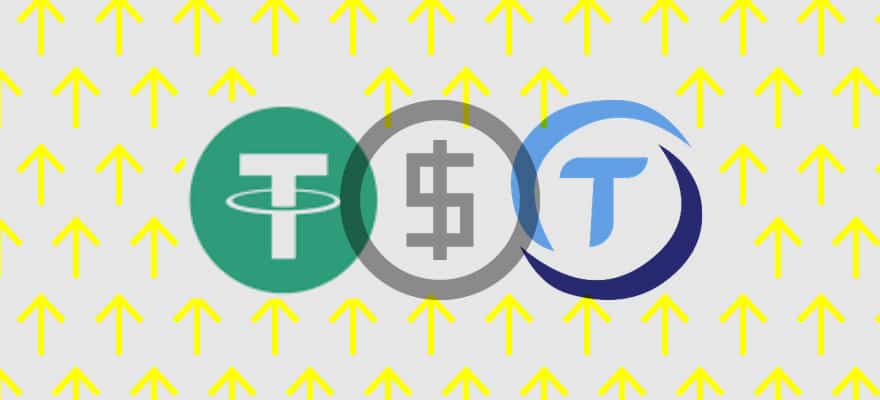News in September 2020 that Nigeria’s Securities and Exchange Commission had pushed through landmark rules to treat crypto assets as securities herald the start of a fascinating period for the fintech sector on the continent as a whole.
Token offerings, ICOs and security token issuances will all be treated as investment schemes, it said, while crypto and Blockchain companies that want to operate in the country must register with the SEC.
Additionally, the market regulator said that existing digital asset offerings now have three months to file a registration with the SEC.
Crucially, the regulator’s position “is that virtual crypto assets are securities unless proven otherwise”. As such the burden lies on issuers themselves to prove that any new crypto assets are not securities and as such do not fall under the SEC’s jurisdiction.
“The general objective of the regulation is not to hinder technology or stifle innovation, but to create standards that encourage ethical practices,” the regulator wrote in a statement.
This is quite the volte-face from just a couple of years prior when Nigeria’s Senate asked the central bank to “investigate the proliferation of Bitcoin” and warn the public about the apparent ‘dangers’ of cryptocurrency. It produced super-bearish headlines like this from Quartz Africa: ‘Nigeria's lawmakers think Bitcoin is one big financial scam’.
This kind of anti-crypto stance came from repeat financial scandals and Ponzi schemes targeting individual investors, specifically a Russian scam called Mavrodi Mundial Moneybox, in which investigators suggest three million Nigerians lost up to $50m.
But, now with the full backing of Nigeria’s SEC, the cryptocurrency industry can proliferate unhindered, in a regulated way that protects investors.
African Regulation Bites
Two years earlier, pan-African commercial bank, Ecobank released a wide-ranging report on the state of cryptocurrency regulation focused on 39 of the continent’s 51 countries.
It came to one major conclusion. That the vast majority were unconvinced, unsure and playing a waiting game to see where crypto assets went next.
When the report came out in August 2018, 21 countries had no official stance on cryptocurrencies. Only two nations, South Africa and Swaziland, favoured a permissive regulatory structure. The only country to ban cryptocurrency outright, Namibia, cited a 1966 law in explaining its position.
Many African governments and regulators “recognise both the risks and the potential positive impacts of cryptocurrencies,” the report said, noting that they “have been reticent in authorising cryptocurrency transactions...African countries appear to be looking to their neighbours to regulate and innovate first rather than being the first mover.”
And there has been no discernable regional regulatory trend either, the bank’s analysts found. “[W]ith the exceptions of Cameroon, Rwanda and Senegal, no other Francophone government or central bank has made a

Maxim Bederov
policy statement on virtual currencies.”
In September 2019 the Burundi government joined the list of those making cryptocurrency trading illegal. It was particularly telling that the pressure for this ruling came not from the top down but from the ground up. Burundi banned cryptocurrency transactions because of a swathe of complaints from individual citizens in the central African nation that there was a lack of user protection in the industry.
And why were protections lacking, you ask? Because Burundi had not set up any firm cryptocurrency legislation or regulation.
This is a narrative that over the years has been repeated across borders, from high-GDP nations to those with weaker economies alike.
It would clearly be the kind of financial investment that would benefit monetarily from handling cryptocurrency transactions for high-net-worth investors, supporting crypto asset startups with development loans, and acting as the financial backbone for this nascent sector. But, without strong regulatory guidance from nations themselves, supporting an unregulated and rapid-growth technology sector could become very costly indeed.
No wonder financial institutions have been avoiding cryptocurrency in Africa.
Where the Problems Start
For years, African regulators have been scrambling to get a hold on huge spikes and interest in cryptocurrencies.
Added to the inherent complexities of analysing an entire continent are the dizzying myriad of foreign exchange and currency issues that plague the region.
Let’s take Nigeria as our example here.
It has been reported consistently for years that Nigerians have been shifting wealth into Bitcoin in an attempt to bypass the mass devaluation of the fiat currency, the Naira.
The picture is further complicated by the fact that Nigerians must contend with a black market for exchange rates where the Naira trades at more than 450 to the US dollar. The official central bank rate is only 307 to the dollar, but there have been significant shortages in foreign currencies, notably for businesses transacting in dollars or families who want the American currency to pay for overseas school fees.
There is another angle to consider: the use of Bitcoin as an anti-censorship tool.
Economic mismanagement and police brutality have been the spark for widespread protests across Nigeria in recent weeks. Since 2017 the EndSARS protest movement has sought to abolish the country’s notorious Special Anti-Robbery Squad (SARS), a security forces division with a track record of abusing, harassing, killing and extorting citizens. By the end of a wave of street protests in October, 69 people were reported killed to international outrage.
Nigerian banks, fearing a political backlash, have shut down accounts belonging to activists.
One protestor group called the Feminist Coalition turned to cryptocurrency, raising over $156,000 in Bitcoin as recorded by their online accounts.
It brings to mind the way that protestors against Chinese influence in Hong Kong throughout searing national protests in 2020 turned to cryptocurrency to bypass third-party intervention, payment blocking and censorship.
The thirst for cryptocurrency on an Africa-wide level has been backed up by major studies from some of the industry’s most respected analysts.
In Chainalysis’s 2020 Geography of Cryptocurrency Report, researchers found that the demand for cheap remittances and the instability of fiat currencies were the main reasons why cryptocurrency usage was growing so quickly.
Between June 2019 and June 2020, people overseas transferred $562m in addresses into Africa, the report found.
And smaller value transfers under $10,000 rose by 55% to $316m in the year to June 2020, Chainalysis said.
“Africa has the smallest cryptocurrency economy of any region we analysed in this report, with just $8bn received and $8.1bn sent on chain in the last year,” it said.
“However, that relatively small amount of activity is creating life-changing value for users in the region facing economic instability, offering low-fee remittances and an alternative way to save.”
Who Will Regulate Next?
The suggestion that African economies have been waiting cautiously for their neighbours to regulate before making any official pronouncements themselves now suggests that there will be a torrent of governments falling in line to supply their own regulations on cryptocurrency.
Nigeria, of course, is Africa’s richest country by GDP, with a gross domestic product of $444.9bn.
South Africa is second with $371.2bn but has the continent’s highest GDP per capita, at $6,341.46 per person.
Egypt is third with $299.5bn, Algeria lies fourth with $183.6bn, Morocco is fifth with $121.3bn and Kenya sixth with an annual GDP of $109.2bn.
Any one of these states could regulate next, and it would come as no great surprise if, in fact, it happened in GDP order.
South Africa made its own series of concrete moves in July 2020. Legislators put forward new rules for a country-wide framework in line with FATF anti-money laundering standards. Additionally, Kenya’s Capital Markets Authority admitted fintech to the country’s first ever regulatory sandbox in 2019, admitting two blockchain companies — Pyppl Group and Delirium Kenya — in June this year.
And just last month, young Kenyan entrepreneurs created a new Payments stablecoin in this sandbox, a move which industry commentators said highlighted a need for Africa-wide regulations.
That is unlikely to happen, in truth. Treating the world’s second-largest continent as one homogenous region is problematic at best.
But, the status quo, that fast-moving fintech and crypto businesses must clash with cautious regulators and central banks, is clearly changing for the better. Africa could not ignore cryptocurrency forever. Now the veil has been lifted and exciting times lie ahead.
Maxim Bederov is an investor and entrepreneur






















